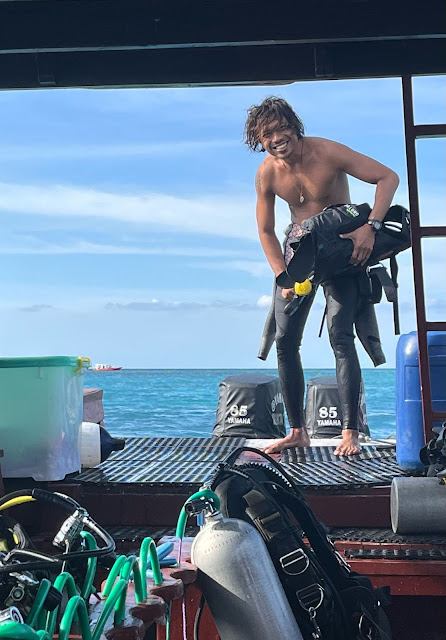Tips for Beginning Scuba Diving Instructors
Tips for Beginning Scuba Diving Instructors
Congratulations on passing your PADI Instructor Development Course (IDC) and completing your Master Scuba Diver Trainer (MSDT) preparation with five PADI Instructor Specialties. As a newly certified instructor, you're now ready to assist and teach PADI courses. However, the journey from a newly certified instructor to a confident and experienced educator involves continuous learning and preparation. Here are some tips to help you get more comfortable and proficient in teaching scuba diving courses.
Preparation is Key
One of the most critical aspects of being an effective scuba diving instructor is thorough preparation. Start by reviewing your instructor manual the day before your class. This will refresh your memory on the skills your students need to master and help you plan the sequence in which you'll conduct these skills. Think about the entire day's sequence, including how you'll manage time, safety checks, and transitions between activities.
Understand Your Responsibilities
As a new instructor, it's crucial to understand that you are responsible for your course and your students, not the dive center you work for. This means that while the dive center may provide logistical support and resources, the quality and safety of the instruction rest on your shoulders. Avoid succumbing to peer pressure from the dive center about when and how to teach certain skills. Stick to the standards and guidelines set by PADI.
Utilize Experienced Instructors
While you should maintain your authority and responsibility, don't hesitate to seek advice from more experienced instructors. They can offer valuable insights and help you create a course schedule. However, remember that you are updated with the latest changes in the PADI Instructor Manual. Use this knowledge to ensure your teaching methods are current and effective.
Daily Preparation and Review
New instructors should focus on daily preparation. Each day, review what you plan to teach, considering the sequence of skills and the overall flow of the course. Use the official PADI teaching materials, like cue cards, which are designed to assist you in adhering to the standards and ensuring all required skills are covered. PADI doesn't expect you to memorize everything immediately; these materials are there to guide you and help maintain consistency in your teaching.
Embrace the Learning Curve
There's a common misconception that more experienced instructors know everything better. As a new instructor, you bring fresh knowledge of the latest regulations and standards. Trust the training you've received and the materials at your disposal. Over time, your confidence will grow, and you'll develop your style and methods.
Build a Strong Foundation
To build a strong foundation, focus on the following areas:
- Safety: Always prioritize the safety of your students. Ensure they understand the importance of safety protocols and follow them rigorously.
- Communication: Develop clear and effective communication skills. This includes giving concise instructions, providing constructive feedback, and being approachable for questions and concerns.
- Demonstration: Be proficient in demonstrating skills. Students learn a lot by watching, so your demonstrations should be clear and accurate.
- Patience: Every student learns at their own pace. Be patient and provide encouragement and support to help them overcome challenges.
Continuous Professional Development
Finally, keep learning. Attend workshops, participate in additional training, and stay updated with PADI's latest standards and techniques. The diving industry is always evolving, and staying informed will help you provide the best possible instruction.
Conclusion
Becoming a skilled scuba diving instructor is a journey that involves continuous learning and dedication. By preparing thoroughly, understanding your responsibilities, utilizing available resources, and maintaining a commitment to safety and effective teaching, you'll become a confident and competent instructor. Remember, the key to success is preparation, patience, and a passion for teaching the underwater world to others. Happy diving!



Comments
Post a Comment